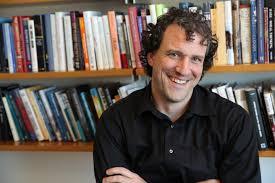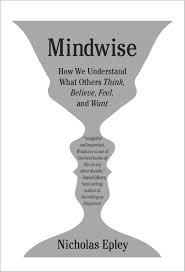
We are overly confident about our capacity to read other people, even our spouses. Trying to "detect the emotion someone is feeling by looking at a picture of their face or looking into someone's eyes" (two common mind reading tests) actually worsens our accuracy, according to MindWise author and behavioral science professor at the University of Chicago, Nicholas Epley.
This flies in the face of common wisdom that, to boost understanding, we should, metaphorically step into the other person's shoes. As Dale Carnegie famously suggested as his Principle 8 in How to Win Friends and Influence People, "Try honestly to see things from the other person's point of view." Yet Epley found that such "overthinking" actually leads to more errors. Even, "the scientific credibility of claims" about microexpressions, the "tells" in the face that last a fifth of a second, "is currently weak, at best," according to Epley. We are better liars than we think we are.
"Assumptions are the termites of relationships," Henry Winkler.
Ask. Don't Speculate.
The key to understanding others better is rare yet blindingly simple. It's simply to ask, not assume, listen closely to the answer and confirm that you heard it right by telling them what you heard. Eply suggests three ways to do so:
1. Talking Stick: Only the person with the stick speaks, then that person could hand it to another or someone could ask for it, yet first had to summarize what they just heard, to the first speaker's satisfaction, before they continue the conversation.
2. Parroting: Simple "parrot" back exactly what you heard before proceeding.
3. Speaker-Listener: originally designed by psychologist, Howard Markman for couples to resolve conflicts, yet could work in any disagreements, one person tosses a coin to determine who speaks first. Each person describes exactly what they heard before responding.
A group of retired military officers assumed they knew how soldiers would feel and thus strongly opposed the repeal of "don't ask, don't tell" policy. Yet when the Pentagon asked soldier directly, rather than "mind reading" "70 percent believed the repeal would have no effect or a positive effect on the military" according to Epley. Similarly Epley found that top management in companies tends to put more credence in outside consultants' recommendations than on what employees actually want.
Tip: "The less we know the more we project onto others."
Who's Most Preoccupied by Sex Really?
Eply covers other area where we mistakenly focus on our differences and make wrong assumptions. For example, the most important gender difference is that "women tend to have better social senses -- are better able to empathize with others, to recognize other's emotions" discovered neuroscientist Simon Baron-Cohen. Yet his more startling finding, according to Epley (and to me) is that "the differences among men and women are far larger than the differences between women and men." Consequently, Epley strongly refutes the frequent characterizations that "exaggerate" the differences between the sexes, such as those made by the author of The Female Brain and The Male Brain, Louann Brizendine, especially this one: "This (testosterone in fifteen-year-old boys) fuels their sexual engine and makes it impossible for them to stop thinking about female body parts and sex." "That's almost accurate in the same way that a paper airplane is almost a 747." Men think about sex more than women, some studies show, yet the effect is actually considered small in statistical terms, because the variability among men and women is very large."
We Often Act Better When We Feel Someone's Watching
When the Honesty Box, in the mailroom, where professors at the University of Newcastle paid for their coffee and tea had painted eyes on it, professors paid three times more, on average, than when there were images of flowers on it.
In a Boston experiment people, in front of a screen, were 30 percent more generous when the screen showed the big, watchful eyes of an MIT-designed robot, "looking" at them.
Relatedly, the more Car Talk radio show listeners indicate they love their car the more likely they are to attribute human qualities to it.
Tip: Consider the settings in which you work and play, and how you could create images on visible objects on which others would anthropomorphize good feelings that spurred us to act better.
I am barely scratching the surface of what's in Epley's extraordinary book -- how you can better understand others by asking, and humbly recognize the limitations to what you can understand when you have little information. As empathic accuracy expert, William Ickes discovered, "the best predictor of empathic accuracy appears to be verbal intelligence. Knowing others' minds requires asking and listening, not just reading and guessing."

